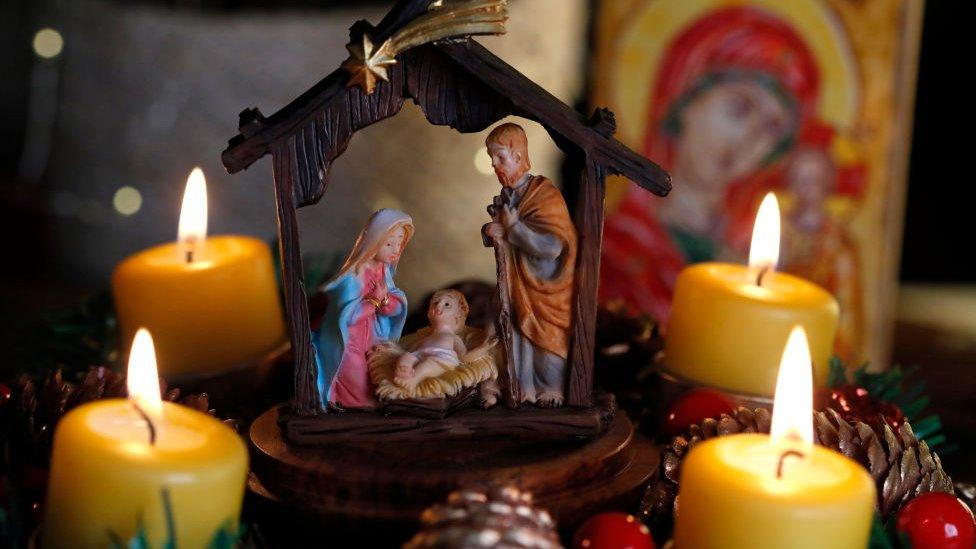Advent calendars: Is it time to close the door on throwaway advent calendars?
- Published
- comments
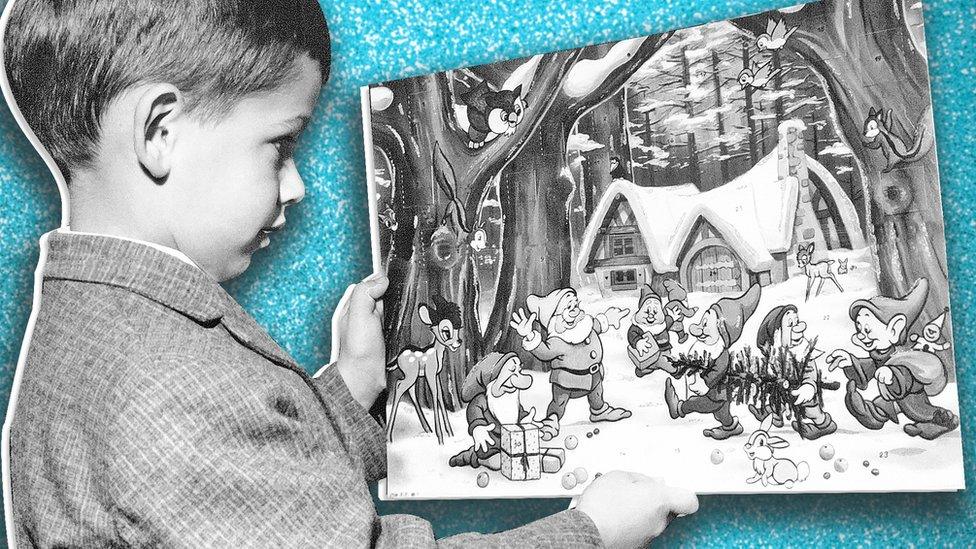
Sometimes - just waiting for Christmas to arrive is as exciting as the day itself.
For many of us, Advent calendars are a fun way to count down to the big day.
But recently, some are questioning how ethical the disposable calendars really are.
This is because Advent calendars contain more than chocolate and small gifts - they also are full of plastic and covered in glittery decorations.
Often the plastic can't be recycled by local councils and glitter, which is made from tiny pieces of plastic, can't be recycled at all.
So what do you think? Do Advent calendars cause more harm than good by adding to plastic pollution or are they an important way to celebrate the Christmas holidays?
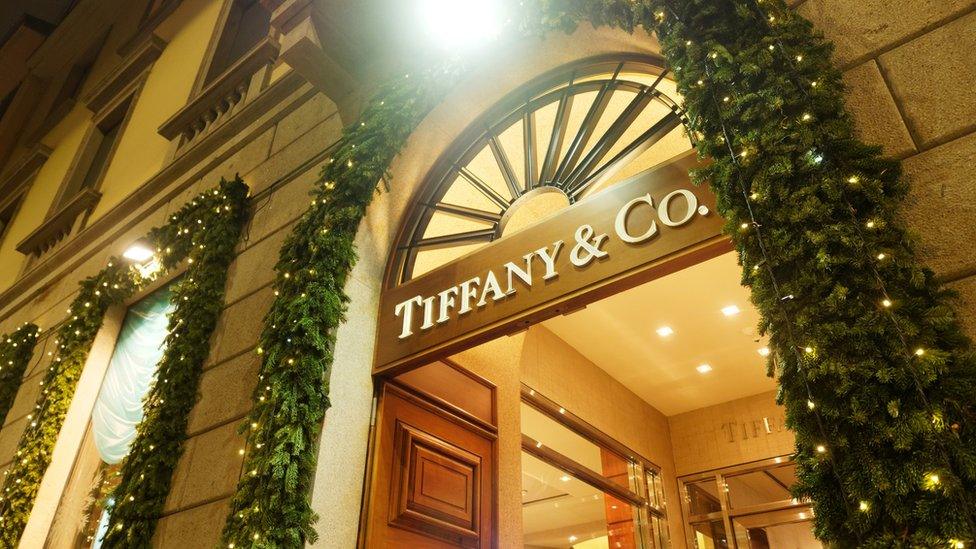
This year, Tiffany & Co, have released an Advent calendar worth $112,000 (nearly £90,000) filled with expensive jewellery
What is an Advent calendar?
Advent is a significant event in the Christian calendar. The word advent comes from the Latin word for coming.
Christians believe Advent celebrates the weeks leading to the birth of Jesus Christ, which is marked by Christmas Day.
In Christianity, Jesus is seen as the Son of God and the saviour of humankind. His arrival is therefore celebrated by Christians throughout Advent.
Advent starts on the Sunday closest to 30 November.

Traditionally, Advent candles have been used to record the weeks leading up to Christmas Day.
In the past, Christians would use specially made candles to countdown the days to Christmas.
Advent calendars are a more recent tradition - thought to have started in the early 1900s.
At first they were more decorative, with festive images and 24 doors to open. Each door represented a day leading up to Christmas.
Today, many Advent calendars have gifts and chocolate hidden behind the individual doors.
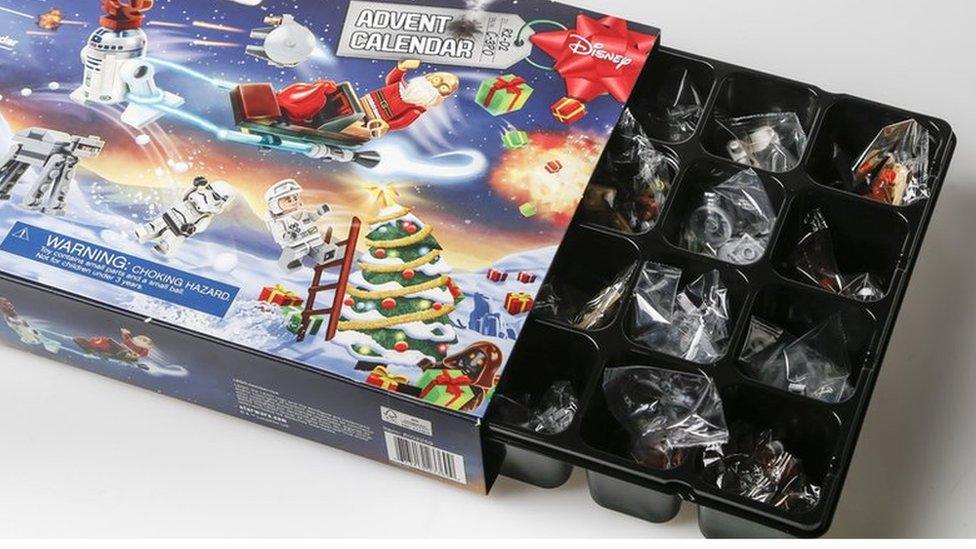
Some Advent calendars are filled with lots of plastic gifts and wrappings
What's the problem with "throwaway" Advent calendars?
Recently, makers of disposable Advent calendars have been criticised for not being environmentally-friendly.
Many Advent calendars bought in the UK are thrown away when the Christmas period is over.
These calendars are often full of plastic which often can't be recycled - which is bad for the environment.
Black plastic can't be recycled, because the recycling machines that sort out rubbish can't tell it apart it from the dark conveyor belt.
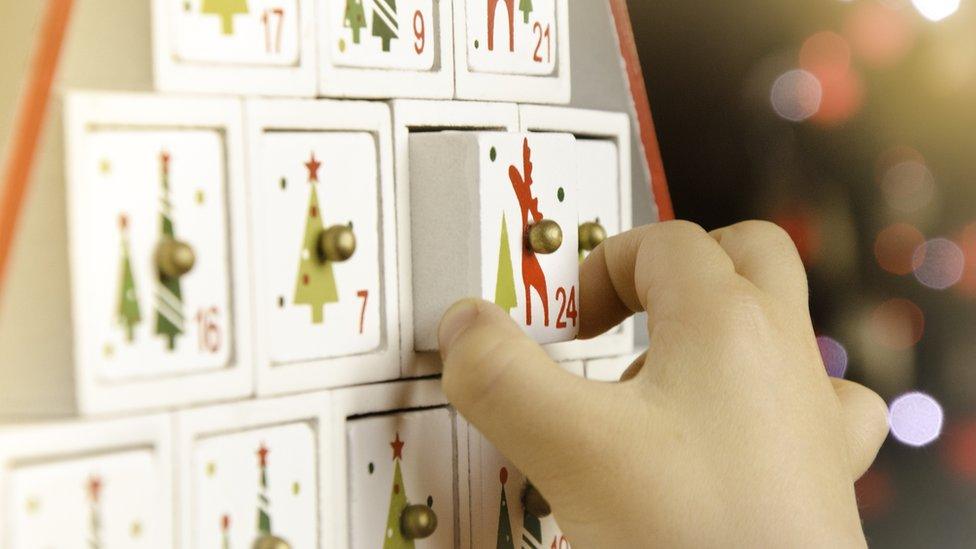
Some people choose calendars they can reuse every year, refilling empty boxes or pouches with new gifts and sweets
Are there any alternatives to throwaway calendars?
Many families have permanent Advent calendars that they use every Christmas. These usually have boxes or pouches that can be filled with sweets or small gifts.
Calendars that you can keep are often more environmentally friendly and create less waste.
But permanent Advent calendars can be a lot more expensive than the ones you throw away!
Some people like to do a reverse Advent calendar - this is where they give something away for each day of Advent.
For example, they may collect food and clothes and then give them away to charities.
We want to know what you think
Do you think disposable advent calendars are good or bad? Do you have an alternative tradition at Christmas?
Vote above and comment below with your thoughts.
If you cannot see the interactive activity on this page, click here.
- Published4 December 2018

- Published1 December 2018
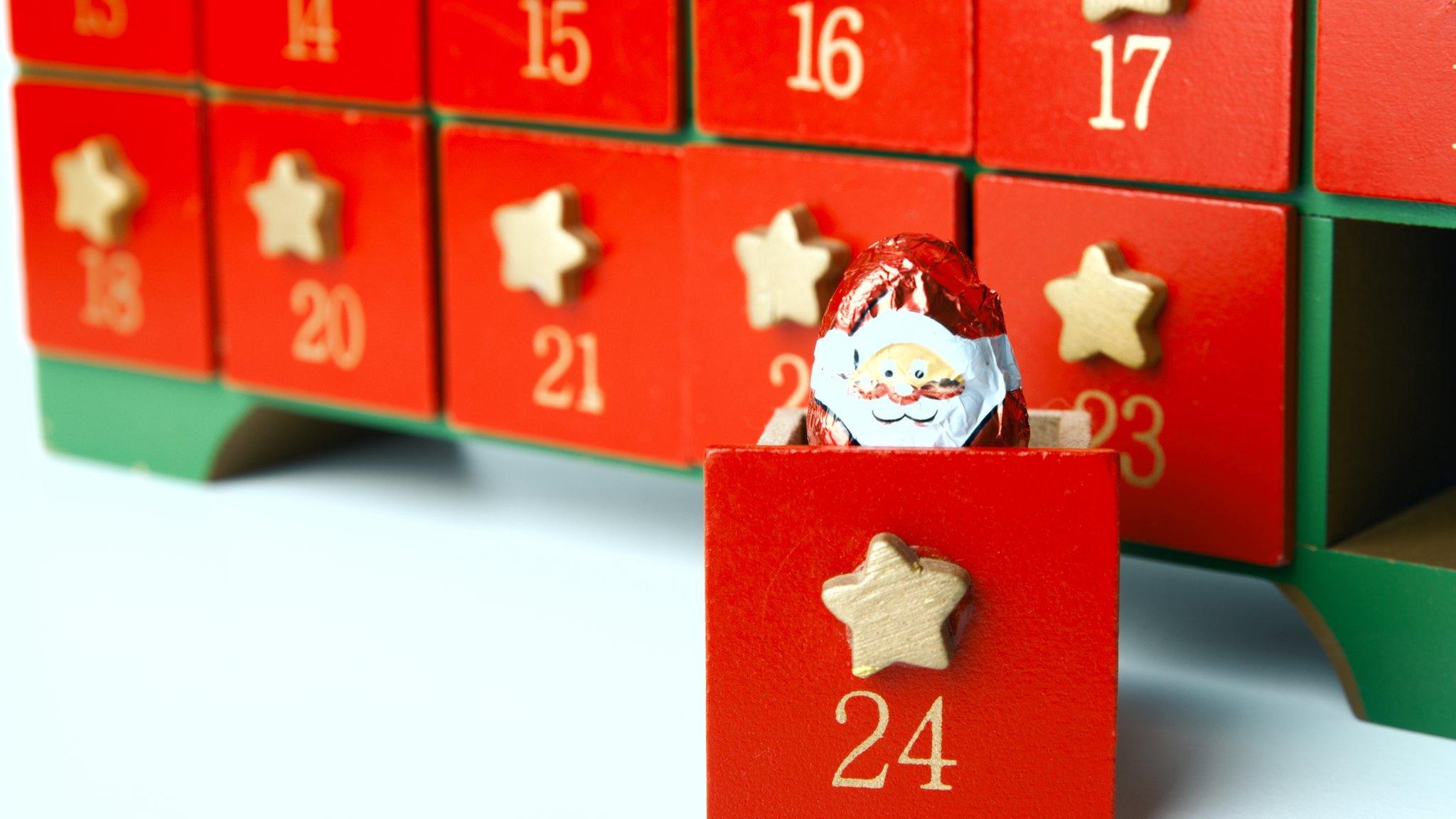
- Published29 November 2024
